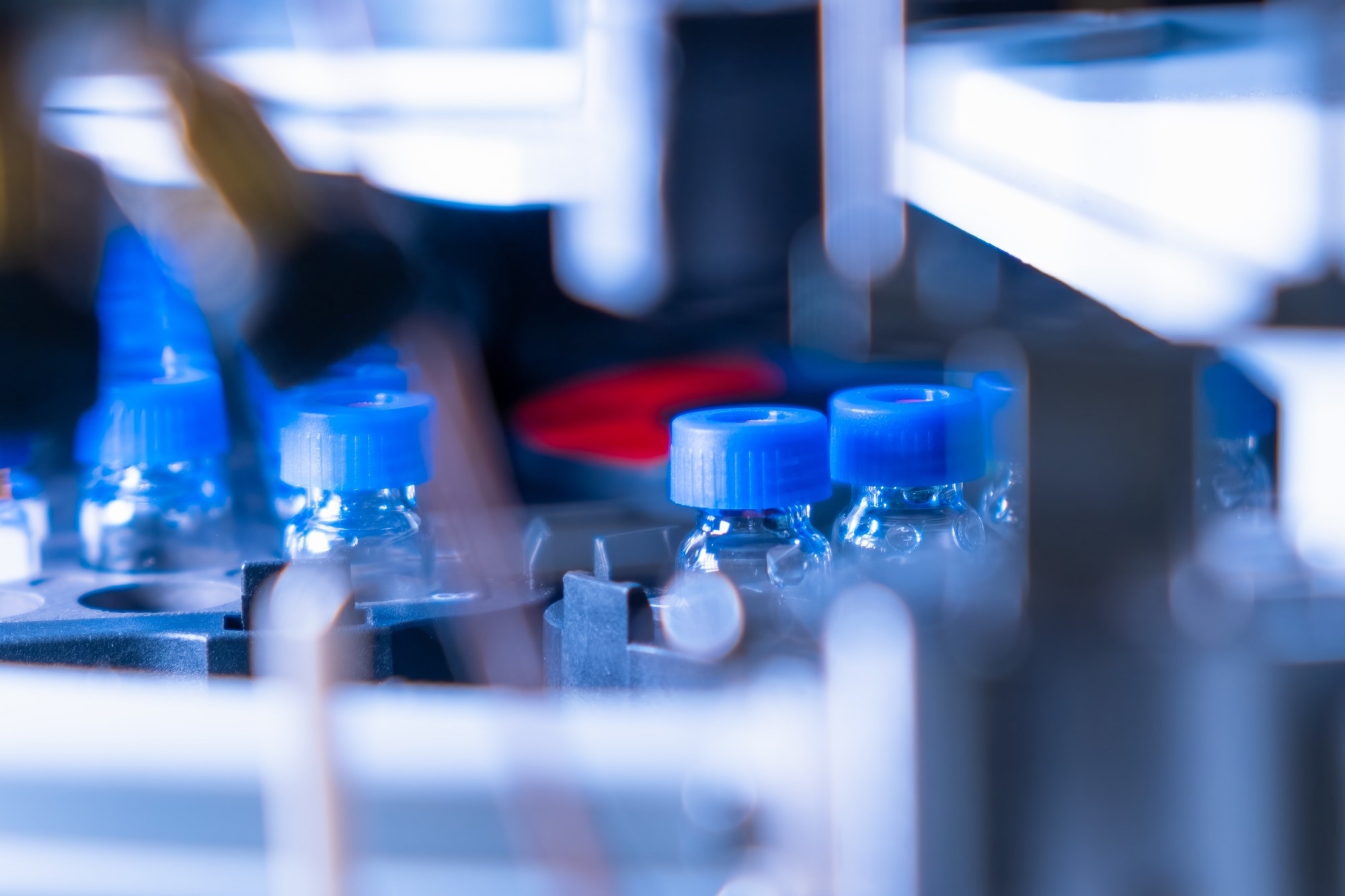The recent advancements in single-cell proteomics have significantly improved our understanding of the role of cellular processes in health and disease while providing high-throughput and increased sensitivity in the data.
In a recent study published in Nature Communications, researchers developed a label-free single-cell proteomics workflow that integrated the automated sample handling, optimal ion usage, and high-throughput capacities of different components to overcome the reproducibility and quantification limitations of existing single-cell proteomics methods.
 Study: Automated single-cell proteomics providing sufficient proteome depth to study complex biology beyond cell type classifications. Image Credit: Vladimka production/Shutterstock.com
Study: Automated single-cell proteomics providing sufficient proteome depth to study complex biology beyond cell type classifications. Image Credit: Vladimka production/Shutterstock.com
Background
The last decade has seen rapid advances in the field of ‘omics’, with genomics and transcriptomics methods providing novel insights into the cellular mechanisms of diseases.
Thus far, single-cell-based methods have focused on identifying aberrant cell types and diverse populations of cells to understand biological heterogeneity.
The development of single-cell proteomics, especially mass spectrometry methods, has been invaluable in understanding protein function and post-translational modifications.
However, factors such as the low protein content in mammalian cells and problems with label-free identification continue to present challenges in improving quantification and reproducibility.
Incorporating liquid chromatography-tandem mass spectrometry (LC-MS/MS) has been useful in addressing some of the sensitivity-related challenges, but isobaric-label-related ratio compression and ion signal suppression impact the accuracy of protein quantification. In contrast, label-free quantification methods have the disadvantage of low throughput.
About the Study
In the present study, the researchers developed an automated, label-free single-cell proteomics workflow by combining the automated sample handling abilities of the proteoCHIP EVO 96 with the high-throughput capacities of the Evosep One mass chromatography system, along with optimal ion usage of the trapped ion mobility spectrometry-time-of-flight (timsTOF) Ultra mass-spectrometry offered by Bruker instruments.
Processes involving manual handling and sample transfer across different reaction vessels can significantly impact peptide recovery and reproducibility. This could result in the inability to obtain biologically meaningful data, especially in cases where the input levels are already low.
The label-free single-cell proteomics method involving low nanoliter automated sample preparation offered by proteoCHIP EVO 96 helps circumvent the challenges of manual sample handling.
The cellenONE single-cell isolation technology used to implement proteoCHIP EVO 96 allows sample volumes as low as picolitres and single-cells to be handled accurately. Furthermore, automated scripts are used in the cellenONE system to control the humidity and temperature during incubation.
While recent studies have shown that integrating the automated sample preparation directly into the high-performance liquid chromatography (HPLC) process helps improve peptide recovery and reproducibility, it still presents challenges associated with removing sample preparation side products and chemicals.
The Evosep One system has disposable trap columns built-in for sample cleanup that remove the sample background before proceeding with the LC-MS/MS analysis.
This step has significantly improved the sensitivity, reproducibility, chromatographic throughput, and faster mass-spectrometry results.
The researchers tested the performance of this automated single-cell proteomics workflow using standard human embryonic kidney 293 (HEK293T) cell lines.
They also evaluated whether the proteoCHIP EVO 96-based single-cell proteomic workflow could profile the metabolic responses and cytokine production when lipopolysaccharides stimulate inflammation in the THP-1 human leukemia monocytic cell line.
Major Findings
The study showed that the label-free single-cell proteomics workflow with automated sample handling using the latest timsTOF technology and proteoCHIP EVO 96 could identify 3,500 to 4,000 proteins for each HEK293T cell on average.
Furthermore, the workflow also successfully identified protein modulations and important molecular pathways at a single-cell resolution when lipopolysaccharides were used to stimulate inflammation in THP-1 cells.
Using Evotips instead of the HPLC vials used during manual sampling handling as part of the automated workflow for chromatographic separation significantly decreased protein loss.
The study reported that each manual sample transfer step results in about 29% protein identification loss, with HPLC vials increasing protein loss to almost 49%, which was circumvented by using Evotips.
The use of timsTOF Ultra, which carries a higher capacity cartridge and uses a brighter ion source, improved the ion usage and resulted in a 25% increase in protein identification for each cell compared to the previous timsTOF single-cell proteomics method.
Conclusions
Overall, the researchers demonstrated that this automated single-cell proteomics workflow, which combined the advanced technologies in automated sample handling, chromatography, mass spectrometry, and single-cell normalization and optimizes each step of the process, could efficiently perform comprehensive proteomic analysis at the single-cell level with high sensitivity and reproducibility.
Journal reference:
-
Ctortecka, C., Clark, N. M., Boyle, B. W., Seth, A., R, M. D., Udeshi, N. D., & Carr, S. A. (2024). Automated single-cell proteomics providing sufficient proteome depth to study complex biology beyond cell type classifications. Nature Communications, 15(1), 5707. doi:10.1038/s4146702449651w. https://www.nature.com/articles/s41467-024-49651-w